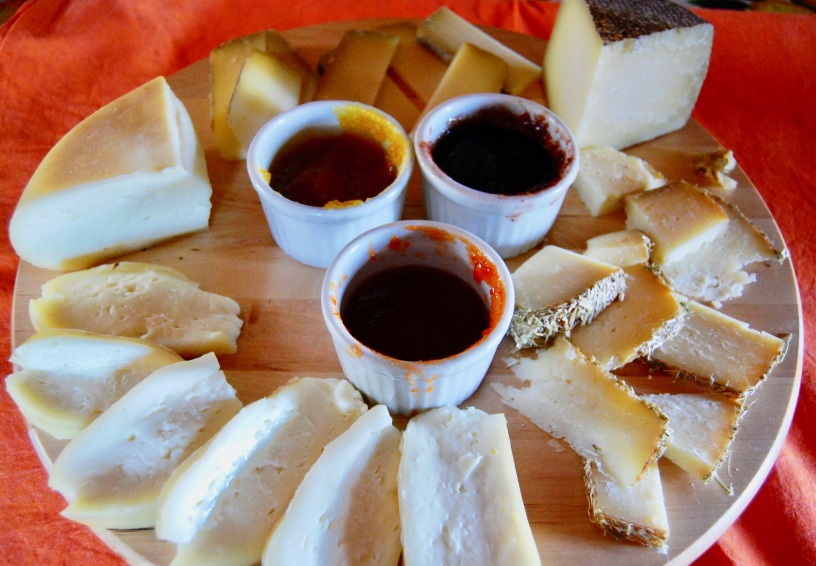
A dish of cheeses :you stop and say I can’t. I can’t eat dairy products.
It is not true .The one on the left you can eat it. Why?
Once lactose intolerance is discovered, the most common mistake is to drastically eliminate the category of dairy products, thinking that it is found in all milk derivatives including cheeses.
Instead, it is possible to avoid unnecessary restrictions and rediscover tastes now abandoned by the intolerant. It was published in the international journal Foods, the study that put under investigation 25 PDO cheeses to investigate the actual amount of lactose and be able to define them naturally free of this sugar, thanks to their natural production process.

The study was conducted in collaboration with the Department of Agricultural, Food and Agro-Environmental Sciences of the University of Pisa, as well as the Aili and Lfree Association .
During seasoning, lactose is transformed into lactic acid. For this reason, semi-hard, hard or blue cheeses are generally accepted by lactose intolerant people.
In these products the reduction of lactose takes place thanks to the natural production process (including fermentation, seasoning, etc.), until it is almost absent by far less than 0.01%.
During these production processes lactose is transformed into lactic acid.
In 2016, the Ministry of Health issued a circular defining the words “naturally lactose-free” for dairy products. It is important to remember that the words “naturally lactose-free” must be accompanied by the residual percentage of lactose, therefore the producer / Consortium must verify with specific chemical analysis the content of this sugar in its product in order to define it as such and declare it on the label.
Which are naturally lactose-free cheeses?

In addition to Gorgonzola Igor and Asiago by Latterie Venete already certified Lfree, Grana Padano, Parmigiano Reggiano, Pecorino Romano are confirmed naturally lactose-free as reported by the respective Consortia. This is the complete list of PDO cheeses that have passed all the tests carried out in the laboratory during the study and have therefore been found to have a lactose content of less than 0.001% since their first maturation (with the exception of Pecorino Toscano that needs 4 months aging)



Gorgonzola Asiago Fontina
The tolerated quantity of the aforementioned cheeses can vary from person to person, it is advisable to try small portions in order to evaluate your tolerance threshold.
NB: We underline that the list refers to the original cheeses not to cheeses with similar names, so pay attention !!!
Fresh cheeses do not have ageing, that’s why they have high amounts of lactose
Among these: mozzarella, robiola, goat cheese, chartreuse, stracchino, mascarpone, cottage cheese, spreadable cheeses, cow or sheep ricotta. Today, there are versions of these ‘delactosed’ cheeses on the market, but the ‘delactosed’ cheeses may be slightly sweeter to the taste.

Ah, sorry I was forgetting :In the first photo the cheese on the left is a 4 months old Tuscan pecorino, fantastic with honey ,walnuts and jams.Good cheese to everybody !


Very interesting, I had no idea! And there will be many like me.
LikeLike
Such good information. Lots of information I did not know. Thanks for sharing with all of us.
LikeLike
Glad you find it interesting Thank you for following us
LikeLiked by 1 person
Thank you for following us.We hope we’ll always have interesting information
LikeLike